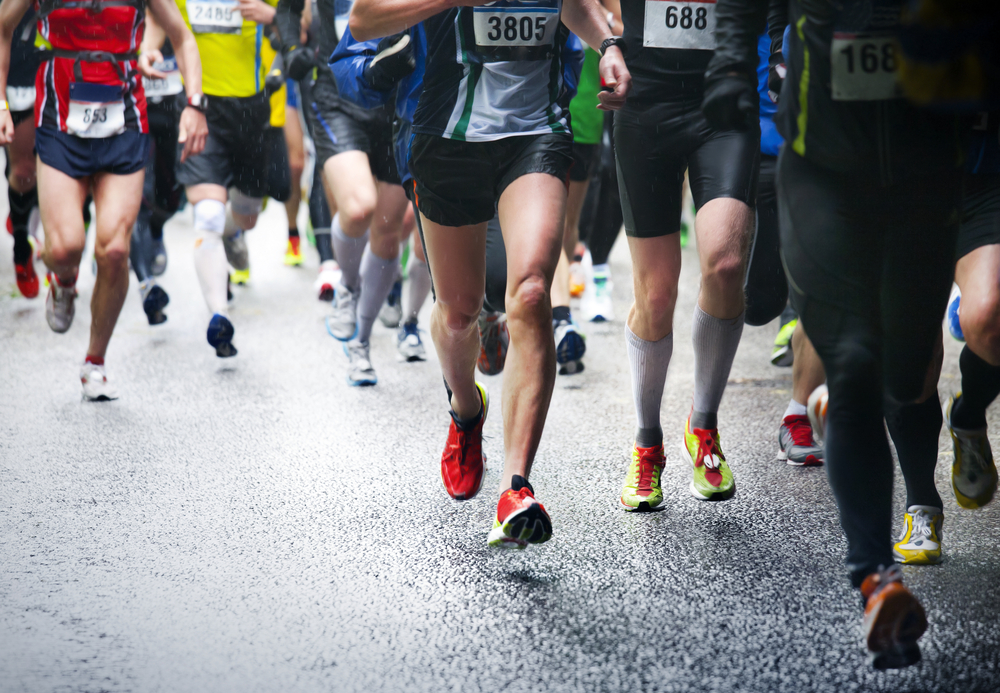 For those undertaking the challenge of a marathon it's important to not only follow a sensible training plan, but also to fuel your body with the right foods and nutrients. – AFP/Relaxnews pic, February 29, 2016.The marathon majors get underway this Sunday with the Tokyo Marathon 2016, and for those who have decided to make this sporting challenge their fitness goal for this year, it's important to not only follow a sensible training plan, but also to fuel your body with the right foods and nutrients.
For those undertaking the challenge of a marathon it's important to not only follow a sensible training plan, but also to fuel your body with the right foods and nutrients. – AFP/Relaxnews pic, February 29, 2016.The marathon majors get underway this Sunday with the Tokyo Marathon 2016, and for those who have decided to make this sporting challenge their fitness goal for this year, it's important to not only follow a sensible training plan, but also to fuel your body with the right foods and nutrients.
We spoke to expert Emma Rose, nutritionist for Fresh Fitness Food, London's premium provider of bespoke nutrition plans for fitness enthusiasts, athletes and busy professionals, for her advice on matching your nutrition to your training goals.
What should you eat?
When training for a marathon, it's important to fuel your body with whole-grain sources of high quality carbohydrate, such as quinoa, rice, whole wheat pasta.
Carbohydrate is stored in small quantities in the body in the muscles and liver as glycogen, which is then used as energy for the muscles during training sessions, so it's important to have an adequate intake and keep these levels topped up.
Protein requirements also increase, in order to facilitate muscle recovery. Choose sources such as lean meats (grass-fed beef, skinless chicken breast, roast turkey), fish (tuna, and salmon in particular), eggs and dairy.
The correct amount of protein will help faster recovery and allow you to train harder on workout days by repairing and growing lean muscle. For optimal recovery eat between 1.2g and 1.7g of protein per kg of body weight – however the right amount within this range can be assessed and adjusted if necessary.
What to eat pre-training
Try to focus on smaller carbohydrate snacks that have a fairly high glycemic index score (GI). A food's GI measure is relative to how quickly it is digested and broken down into glucose, so high-GI foods are absorbed faster and less strain is placed on the gut.
What to eat post-training
Your post training meal needs to include both protein and carb – both are essential for recovery after training. The carb component replenishes glycogen stores and the protein is vital for the growth and repair of muscle tissue.
Should you drink while training?
Alcohol is essentially empty calories and devoid of any nutritional value. While training for a marathon it is important to fuel your body with the most nutrient dense foods you can to support all your body systems as heavy training can put stress on the body and impact immunity and recovery. For this reason, it is best to avoid alcohol completely.
On the day
The morning of your race is the time to top up your glycogen stores and hydrate after a night's sleep. Eat a meal a good three hours before an event to give your body time to digest.
Slow release (low GI) carbs are the best nourishment for your body a few hours before a race, for example wholegrain rice and pasta. Avoid fatty foods that will lie in your stomach, and anything that you're not used to, this is important to not stress and upset the stomach.
During the race you will need to top up glycogen stores, a guideline is 30-60g per hour – that's roughly a gel plus a sports drink (containing carbs and electrolytes) every hour.
Your post-race nutrition should include high GI carbs and protein-rich foods to boost your energy, rebuild glycogen stores and repair damaged muscle tissue.
The best foods to eat immediately after are easily digested carbs – try a banana, which provides a good supply of carb as well as potassium to prevent muscle cramps, or a drink/smoothie that contains carbs as well as a small amount of protein. – AFP/Relaxnews, February 29, 2016.

Comments
Please refrain from nicknames or comments of a racist, sexist, personal, vulgar or derogatory nature, or you may risk being blocked from commenting in our website. We encourage commenters to use their real names as their username. As comments are moderated, they may not appear immediately or even on the same day you posted them. We also reserve the right to delete off-topic comments